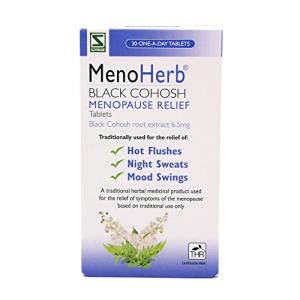Establishing an ideal sleep routine is crucial when dealing with insomnia during menopause. You may have realised that traditional bedtime rituals no longer work for you, and that's completely normal! Your body is undergoing significant changes, which means your sleep needs may differ from what they once were. Let's explore some tips to help you address the challenging sleep issues associated with menopause.
To create a calming bedtime environment, start by dimming the lights and turning off screens at least one hour before bedtime. This simple step can make a significant difference. Additionally, a comfortable mattress and soft bedding can contribute to a more restful sleep. If you tend to feel warm at night, consider using breathable sheets and sleepwear to help keep you cool and comfortable. Keeping the room cool can also improve your sleep quality.
Consider your wind-down routine. Engaging in activities such as reading a book, practising gentle yoga, or listening to soothing music can help create an atmosphere conducive to sleep. Additionally, mindfulness or meditation before bedtime is an effective way to relax your mind and body for a restful night. If you're looking for ways to improve your sleep during menopause, this calming approach can be very beneficial.
Don't forget about treatment options for menopause-related insomnia. Some women find relief from sleep issues during menopause with supplements like melatonin or magnesium. Always consult your healthcare provider before starting any new supplement to ensure it's safe for you.
Lastly, maintain a sleep journal to monitor your patterns. Write down what helps and what doesn't, along with factors such as stress levels and diet. This will help you understand your unique needs and adjust your routine accordingly. Remember, you deserve quality sleep, even during menopause!
Create a Cosy Sleep Environment
Creating a cosy sleep environment can significantly improve menopause-related insomnia. When your bedroom feels like a sanctuary, it's much easier to drift off into dreamland. Start by ensuring your room is dark. Consider using blackout curtains or a sleep mask, as this simple step can alleviate sleep problems associated with menopause.
Next, focus on maintaining the right temperature. A cool room often leads to a better night's sleep, especially when trying to manage night sweats. You can keep your space comfortable by using a fan or air conditioning. On warmer nights, opt for breathable sheets and lightweight blankets to help regulate your body temperature and ease menopause-related insomnia.
Don't overlook the importance of your bed. Invest in a mattress and pillows that provide proper support. Sometimes, a little extra comfort is all it takes to improve your sleep. Adding soft, cosy bedding can create a snug and inviting atmosphere. A good mattress is essential for managing menopause-related sleep issues.
Finally, personalise your space. Incorporate elements that help you relax, such as soothing scents from essential oils or calming music. Consider using products like melatonin or other supplements designed for menopause sleep to help you wind down. By creating a welcoming environment, you signal to your body that it's time to rest, making it easier to sleep better during menopause.
4.43 out of 5 starsMenoHerb Black Cohosh for Menopause Relief 30 Tablets
Find natural comfort and support during menopause with MenoHerb Black Cohosh
Product information
Product Review Score
Product links
Explore Natural Sleep Aids
If you're tossing and turning at night, you're not alone. Many women experience insomnia during menopause, making it difficult to get the restorative sleep they need. But don't worry—there are natural sleep aids that can help you transition into sleep more easily. Let's explore a few options!
First, consider herbal supplements. Chamomile tea is a popular choice; it's soothing and helps create a calming bedtime routine. Another well-known option is valerian root, which is recognised for its ability to improve sleep quality. Both of these can be beneficial for addressing sleep issues related to menopause.
Next, think about magnesium supplements. Magnesium supports muscle relaxation and calms the mind, making it an excellent addition to your evening routine. It's one of the top choices for treating menopause-related insomnia because it not only helps with sleep but also addresses mood swings and anxiety.
Don't overlook the importance of lifestyle changes. Practising mindfulness or yoga can also provide significant relief. These techniques help reduce stress and anxiety, allowing you to unwind more effectively. By combining lifestyle adjustments with natural supplements for menopause-related sleep issues, you can establish a bedtime routine that significantly enhances your chances of getting restful sleep.
$30.11
4.76 out of 5 starsMenopause Supplements for Hormone Balance and Wellness
Find relief and support for your body during this transition with natural ingredients that really work
Product information
Product Review Score
Product links
Manage Stress for Peaceful Nights
Menopause insomnia can be a significant challenge, often leaving you tossing and turning throughout the night. A critical aspect of addressing this issue is stress management. Finding effective ways to relax can significantly improve the quality of your sleep. Here are a few simple techniques to help calm your mind and achieve the rest you need.
Start with deep breathing exercises. When anxiety begins to creep in, take a moment to inhale deeply through your nose and exhale slowly through your mouth. This practice can lower your heart rate and signal your body that it's time to unwind. Pairing deep breathing with gentle stretching can also be beneficial, as it helps release tension that may keep you awake.
You may also want to consider adding calming supplements to support better sleep during menopause. Natural options, such as magnesium or valerian root, can help ease your mind and promote restful sleep. It's always a good idea to consult with your healthcare provider to find the best options for you. The key is to discover the right menopause insomnia treatments that fit into your routine.
Lastly, don't underestimate the power of a good bedtime ritual. Create a soothing environment by dimming the lights and turning off screens at least an hour before bed. You could read a book, listen to soft music, or practice mindfulness. These activities can help shift your focus and make it easier to sleep well during menopause.




